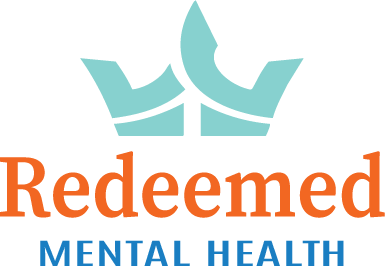What Is Outpatient Mental Health Treatment?
![]() Redeemed Mental Health
on
June 20, 2025
Redeemed Mental Health
on
June 20, 2025
When you’re dealing with mental health challenges, it can feel like you’re expected to hold it all together—especially if you’re a professional who others rely on. But your mental well-being matters just as much as your physical health. If you’re struggling with stress, depression, anxiety, bipolar disorder, or another mental illness, there’s help available that works around your life, not against it. That’s where outpatient mental health treatment comes in.
Understanding Outpatient Mental Health Treatment
Outpatient treatment is a flexible way to get professional help without stepping away from your job or home life. Unlike residential treatment, where you stay at a facility full-time, outpatient care allows you to return home each day. It’s ideal for people with mild to moderate mental health conditions, or those stepping down from a more restrictive treatment setting.
At Redeemed Mental Health in Newport Beach, CA, we offer both in-person and virtual outpatient programs, so you can choose the path that works best for you.
What Types of Outpatient Programs Are Available?
We offer a range of outpatient treatment services, including:
Intensive Outpatient Program (IOP): This program offers structured care several days a week, combining individual therapy, group therapy sessions, and medication management.
Partial Hospitalization Program (PHP): A step above IOP in intensity, our PHP includes full-day support without the need for an overnight stay.
Virtual Therapy & Virtual IOP: Can’t make it to Newport Beach? Our online outpatient mental health services bring healing to you—ideal for busy workers and those in remote areas.
What Mental Health Conditions Can Be Treated?
Our outpatient programs are designed to support people with a wide range of mental health disorders and co-occurring conditions, including:
Other disorders such as bipolar disorder, personality disorders, and eating disorders
Through a combination of treatment modalities like group therapy, individual therapy, family therapy, and life skills training, we create individualized treatment plans that help you heal in real life—not just behind closed doors.
Why Choose Redeemed Mental Health?
Led by licensed psychologist Dr. Andrea Wagner, Redeemed Mental Health is built for working people. We understand that taking care of your mental health needs can’t always mean taking months off the job. That’s why we offer:
Flexible scheduling through in-person and virtual options
Supportive services like nutrition counseling and medication management
A caring team of health professionals who understand the demands of real life
We believe that the purpose of psychiatry and mental health treatment is to set a person free to live their life. Our individualized treatment plans are designed for you personally to achieve positive growth – starting from the place you are in right now. We’re not just another treatment center. We’re your partner in getting better while keeping your life on track.

Start Your Recovery Journey Today
You don’t have to wait for things to get worse. Whether you’re a parent, truck driver, teacher, nurse, union member, or first responder, you deserve to feel like yourself again.
Call +1 (888) 276-4435 today so we can help you find the right outpatient mental health treatment—and the right support—to keep going strong.
FAQs About Outpatient Mental Health Treatment
What types of mental health issues can be treated with outpatient services?
Outpatient services can help individuals facing a wide range of mental health issues, including anxiety, depression, bipolar disorder, PTSD, and more. These programs are often ideal for people who don’t need 24/7 care but still require structured support to manage symptoms.
What are outpatient services in mental health care?
Outpatient services are treatment programs that allow individuals to receive care while continuing to live at home and maintain daily responsibilities. These services may include individual therapy, group therapy, family sessions, and medication management—all without the need for overnight stays.
What is an Intensive Outpatient Program (IOP)?
An Intensive Outpatient Program (IOP) is a structured form of outpatient care that typically involves several hours of therapy per week. It offers more support than standard outpatient therapy but allows clients to return home daily, making it a flexible and effective option for treating moderate mental health issues.
Who should consider an Intensive Outpatient Program IOP?
An IOP is a great option for people who need more than weekly therapy but don’t require inpatient hospitalization. It’s especially beneficial for those recovering from a crisis, managing co-occurring conditions, or stepping down from a higher level of care.
How do outpatient services differ from inpatient treatment?
Outpatient services let clients live at home while attending scheduled therapy sessions and check-ins. In contrast, inpatient treatment involves staying at a facility full-time. Outpatient care is often more flexible, making it ideal for those with work, family, or school responsibilities.





































